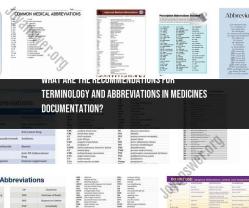What is major surgery?
Major surgery refers to invasive medical procedures that typically involve significant incisions, manipulation of tissues or organs, and a more extensive recovery period compared to minor procedures. Here's a guide to demystify major surgery and provide you with essential information:
1. Importance of Major Surgery:Major surgery is often performed to treat serious medical conditions, improve quality of life, or address life-threatening situations. It may involve removing tumors, repairing structural abnormalities, or restoring bodily functions.
2. Preoperative Assessment:Before surgery, patients undergo a thorough preoperative assessment. This includes medical history, physical examination, laboratory tests, and possibly imaging studies to ensure that the patient is in the best possible condition for surgery.
3. Anesthesia:Major surgeries typically require general anesthesia, which induces a controlled state of unconsciousness. An anesthesiologist or nurse anesthetist administers anesthesia to ensure the patient's comfort and safety during the procedure.
4. Surgical Procedure:The surgical team, which includes surgeons, nurses, and other healthcare professionals, performs the procedure based on the patient's condition. Surgical techniques vary widely depending on the type of surgery being performed.
5. Inpatient Stay:Major surgery often requires a hospital stay for postoperative care and monitoring. The length of the hospital stay depends on the complexity of the surgery and the patient's recovery progress.
6. Postoperative Recovery:Recovery from major surgery involves a healing process that may include pain management, wound care, physical therapy, and rehabilitation. The recovery period can vary from a few weeks to several months.
7. Risks and Complications:Major surgery carries potential risks and complications, including infection, bleeding, blood clots, anesthesia-related issues, and organ damage. The surgical team takes steps to minimize these risks.
8. Follow-Up Care:After discharge, patients usually have scheduled follow-up appointments to monitor their recovery, address any concerns, and adjust the treatment plan if necessary.
9. Emotional and Psychological Aspects:Major surgery can be emotionally and psychologically challenging for patients. It's important to have a support system in place and to communicate openly with healthcare professionals about any fears or anxieties.
10. Informed Consent:Before surgery, patients are required to provide informed consent, indicating that they understand the procedure, potential risks, and alternatives. The surgeon explains the procedure and answers any questions.
11. Planning and Preparation:Preparing for major surgery involves arranging transportation to and from the hospital, following preoperative instructions (such as fasting), and ensuring you have everything you need for your hospital stay.
12. Recovery Timeline:Recovery from major surgery varies based on factors such as the individual's overall health, the type of surgery, and any complications that may arise. Follow medical advice closely and be patient with the healing process.
Always consult with your healthcare provider to get detailed information about your specific surgery, including risks, benefits, and the recovery plan. It's essential to be well-informed, ask questions, and have a clear understanding of what to expect before, during, and after major surgery.












